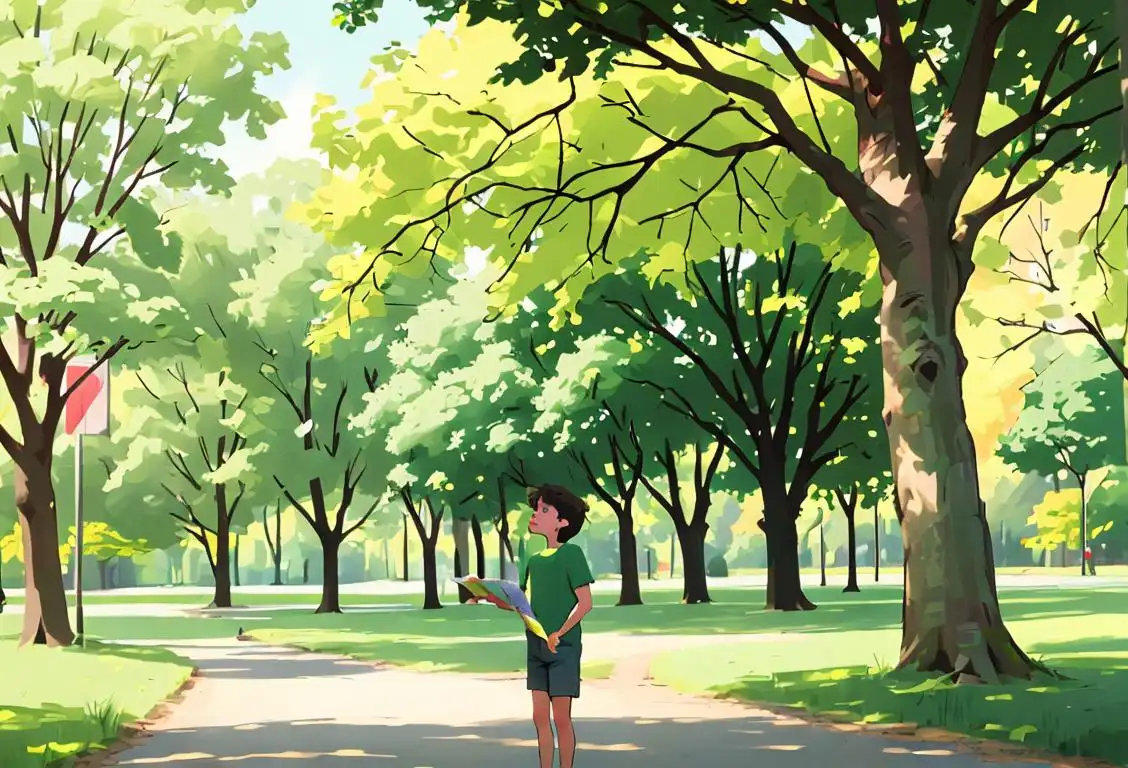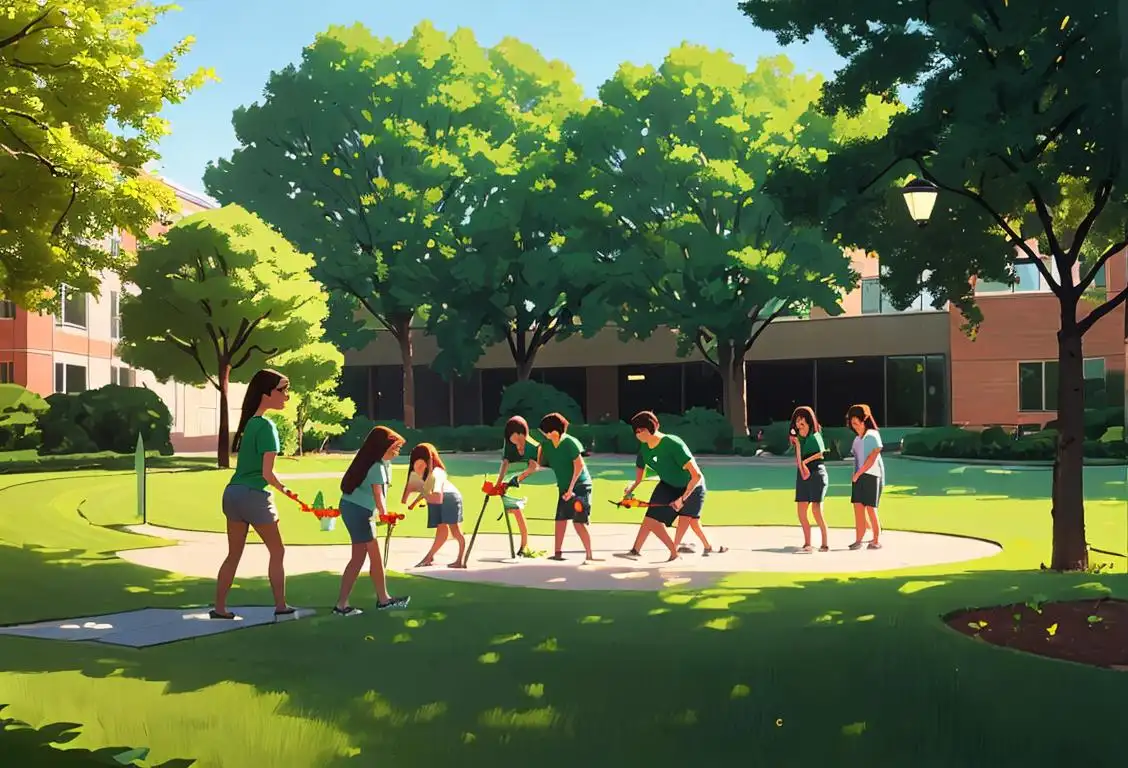National Plastics Awareness Day

Hey there! Welcome to National Plastics Awareness Day, where we dive into the fascinating world of plastics and explore just how important it is to be aware of their impact on our environment. So grab your recycling bin and get ready to learn!
When is Plastics Awareness Day?
It's national plastics awareness day on the 11th February.
The History of National Plastics Awareness Day
In a world filled with convenience and innovation, plastics have become an integral part of our daily lives. From water bottles to grocery bags, we've come to rely heavily on this versatile material. However, with great convenience comes great responsibility, and that's where National Plastics Awareness Day comes in.
This special day was first observed on February 11, 2018, with the goal of raising awareness about the environmental impact of plastic waste. It serves as a reminder for us all to take a step back and consider the choices we make when it comes to using and disposing of plastic materials.
Plastics are not biodegradable, meaning they don't break down naturally like organic materials do. Instead, they stick around for hundreds of years, clogging up landfills and polluting our oceans. So, National Plastics Awareness Day encourages us to think about alternative solutions, such as reducing, reusing, and recycling.
How to Celebrate National Plastics Awareness Day
Celebrating National Plastics Awareness Day is all about making small changes that can have a big impact. Here are a few ideas to get you started:
- Swap out single-use plastics, like water bottles and grocery bags, for reusable alternatives.
- Set up a recycling station in your home or office to properly dispose of plastic waste.
- Spread the word about the importance of plastic awareness by sharing informative articles and tips on social media.
- Participate in local clean-up events to help rid your community of plastic pollution.
Remember, every little action counts, and together we can make a difference!
Did You Know?
Did you know that plastic was invented by Alexander Parkes in 1855? The first plastic, known as Parkesine, was made from cellulose and could be molded into various shapes when heated. Talk about a groundbreaking invention!
History behind the term 'Plastics Awareness'
1869
The Birth of Modern Plastics
In 1869, John Wesley Hyatt, an American inventor and industrialist, developed the first synthetic plastic known as celluloid. Celluloid was initially created as a substitute for ivory in the production of billiard balls. This marked the birth of modern plastics and set the stage for further advancements in the field.
1907
Leo Hendrik Baekeland's Discovery
In the year 1907, Leo Hendrik Baekeland, a Belgian-born American chemist, made a breakthrough discovery in the field of plastics. He invented a synthetic, moldable material called Bakelite, which was the first truly synthetic plastic. Bakelite had a wide range of applications, including electrical insulators, radio and telephone casings, and various consumer products. Baekeland's discovery revolutionized the industry and laid the foundation for the modern plastics era.
1950s
The Rise of Plastics in Consumer Goods
During the 1950s, plastics started gaining widespread popularity in the production of consumer goods. The post-World War II era witnessed a surge in plastic usage due to its versatility, low cost, and ease of mass production. Plastics found their way into everyday items such as household appliances, toys, packaging materials, and even clothing. This era marked a significant shift towards the plasticization of various aspects of life.
1970
Rising Environmental Awareness
In 1970, the modern environmental movement gained momentum, and concerns about the environmental impact of plastics started to emerge. The growth in plastic consumption led to an increased accumulation of plastic waste, raising questions about its long-term effects on ecosystems, wildlife, and human health. This was the beginning of a growing awareness regarding the potential environmental consequences of excessive plastic usage.
1990s
Plastic Pollution Awareness
During the 1990s, awareness about plastic pollution reached a tipping point. Various organizations and environmental activists started highlighting the detrimental effects of plastic waste on marine life and ecosystems. This led to initiatives focusing on recycling, waste management, and reducing plastic usage. Plastics awareness campaigns gained traction, aimed at educating the public about the importance of responsible plastic consumption and disposal.
2000s
Plastics Awareness Becomes Mainstream
By the 2000s, plastics awareness had become mainstream. Governments, non-profit organizations, and businesses worldwide took significant steps to address the plastic pollution issue. Events like World Oceans Day and Earth Day raised global awareness about the effects of plastics on the environment. Efforts to develop sustainable alternatives to single-use plastics, promote recycling, and reduce plastic waste intensified, making plastics awareness a significant cultural and environmental focus.
Did you know?
Did you know that plastic was invented by Alexander Parkes in 1855? The first plastic, known as Parkesine, was made from cellulose and could be molded into various shapes when heated.Tagged
awareness environment sustainability recyclingFirst identified
26th January 2018Most mentioned on
11th February 2018Total mentions
104Other days
Plastics Awareness Day
Save Us Epa Day
Skip The Straw Day
Garbage Day
Arbor Day
Energy Conservation Day
Air Quality Indexa Air Quality Index Will Be Launched At A Day
Crush A Can Day
Recycle Day
Campus Sustainability Day








